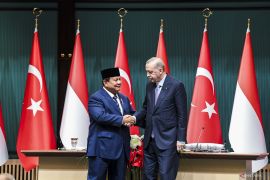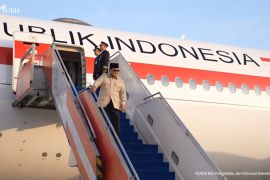Turkey has said that Syria on Friday shot down its military aircraft in international airspace and that it would formally consult with NATO allies on a reaction.
Envoys from NATO member states will meet in Brussels on Tuesday to discuss the issue amid very low expectations that it will induce a military strike against Syria.
Since downing the jet on Friday, Syria has been saying that the jet violated its airspace and asserted that it won`t tolerate any encroachment upon its sovereignty.
Jihad Makdissi, the Syrian Foreign Ministry`s spokesman, said during a press conference on Monday that Syria`s reaction was " defensive ... as the Turkish jet violated the Syrian sovereignty."
He also dismissed Turkey`s claims that the plane was shot down in international air space and not inside its own territory, as Damascus claims.
A military expert told local media that the Turkish step had sinister intentions, raising speculations that the plane was on an espionage mission and that it had probably got information from the Syrian opposition that President Bashar al-Assad was spending the weekend at the presidential palace in the area.
"It (the jet) wanted access to the area of the palace likely to deliver a specific message to the government," he said quoted by Xinhua.
A Syrian analyst, Hamdi Abdullah, concurred that the jet was on an espionage mission.
"Sending the plan was due to espionage reasons," he said, stressing that the move also came to practice pressure on Syria.
He quoted Turkish sources as claiming that the warplane was sent to spy on the Syrian Radar system in the Mediterranean area of Latakia.
He also said the NATO meeting is called under the 4th charter, which is confined to discussing matters, not to determining a strike as the 5th charter.
Turkey, having said it would not retaliate before the NATO meeting, has launched a volley of threats against Damascus and stressed that the issue won`t go unpunished.
The spokesman of the Turkish government said Monday the plane incident shouldn`t pass with impunity.
In another escalation in the two countries` military standoff, the Turkish Deputy Prime Minister Bulent Arinc claimed that another Turkish jet was shot while searching for the wreckage of the first plane.
Apparently, Turkey has already made up its mind to take punitive measures against Damascus.
Turkish Energy Minister Taner Yildiz said Monday that his government could cut off electricity supplies to Syria and the decision could be made public on Tuesday by Prime Minister Recep Tayyip Erdogan during a meeting with the Turkish parliament.
Turkish companies provide Syria with around 10 percent of its electricity needs.
Furthermore, Turkish Anadolu news agency said Monday that dozens of members of Syria`s military, including three colonels, and their families have defected, apparently encouraged by deteriorating relations between the two countries.
Syria also has launched its own threats. Spokesman Makdissi pointed out that Syria would react to any aggressive measure taken by the NATO. "If it (the NATO meeting) has an aggressive nature, we say to them: the Syrian land is sacred for the Syrian army."
Since the very beginning of the Syrian crisis, Turkey has been sympathetic with the Syrian opposition activists and has given safe haven to many of them. It is one of the countries that are most critical of the Syrian government and harbors on its territories around 33,000 Syrian refugees.
Meanwhile, Moscow and Iran have expressed concerns that the jet crisis would lead to a military escalation in Syria.
Russian Deputy Foreign Minister Alexander Grushko on Monday expressed hopes that the NATO Alliance will not take any steps that would aggravate the situation in Syria during its meeting.
In an interview with Novosti news agency in Vienna, Grushko said that Turkey`s call for the NATO meeting is a "worrisome indication to a military escalation in Syria."
Also, an Iranian official has reportedly said Turkey`s breach of Syria`s airspace was a "conspiracy to prompt a military strike. "
Nonetheless, a military strike is still a far-fetched choice for the EU foreign ministers who have lately confirmed that they will not back a military strike against Syria, apparently out of fears that the a military confrontation would spill over into other regional countries.
(C003)
Editor: Maryati
Copyright © ANTARA 2012











